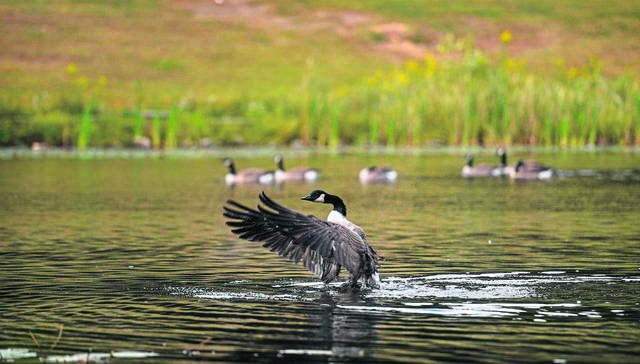This year marks the 100th anniversary of the U.S. Bird Banding Laboratory, whose efforts have helped researchers uncover information about avian migration patterns, population shifts, productivity and more.
For the first time in six decades, however, spring migration won’t be documented by the bird-banding operation at the Powdermill Nature Reserve in Cook, Westmoreland County, because of the ongoing coronavirus pandemic.
“Any bird, mist net, bird bag or other equipment touched by more than one person has the potential to transmit the virus,” said Powdermill’s avian research coordinator Luke DeGroote, who helped draft guidance documents about bird-banding amid the pandemic in his position as chairman of the nonprofit North American Banding Council.
Because many banding operations are team efforts performed in close quarters, the projects can’t be carried out while maintaining safe physical distancing, DeGroote said.
“The guidelines exist because collectively, we as society and bird banders are grappling with what it means to be ‘essential,’” he said. “It’s tragic that for the first time in 60 years spring bird migration won’t be documented by the banding operation at Powdermill, but in the long-term, future scientific insights provided by the decades of work here won’t be harmed by a single missed season.”
DeGroote will, however, have an opportunity to use a $1.35 million grant to expand a new migration tracking system across the northeastern United States.
The U.S. Fish & Wildlife Service grant will allow Powdermill officials to collaborate with several state wildlife agencies and nonprofits to help expand the Motus Wildlife Tracking System, established in 2013 by Bird Studies Canada. It is a network of 900 automated telemetry receiver stations located across the northeastern U.S. that tracks the movement of birds, bats and even creatures as small as dragonflies from distances as great as 9 miles.
The grant will fund 50 new stations, which are equipped with miniaturized transmitters.
In addition to expanding the system’s infrastructure, the grant also will target the study of several species in need of conservation. That includes American kestrels, the region’s smallest falcons, as well as monarch butterflies, whose dramatic population declines have prompted consideration of listing them as a federally endangered species.
For more on the program, see PowdermillArc.org.








